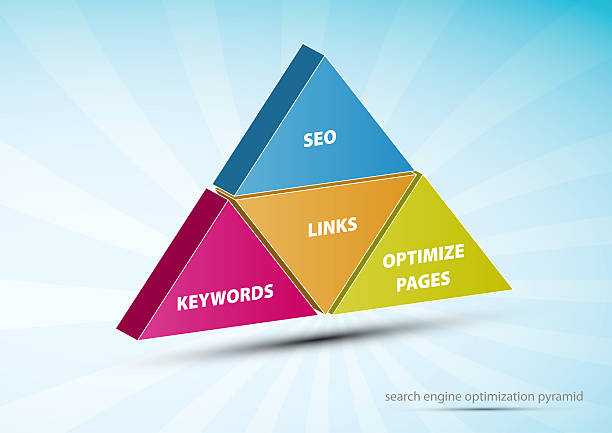What Is Google Analytics And Its Benefits

Google Analytics is a free web analytics tool provided by Google that allows you to analyze the traffic on your website.
What is Google Analytics
Even though "web analytics" may appear to be a minor aspect of your digital presence, Google Analytics has far-reaching implications.
Why is it Important?
Google Analytics provides businesses with detailed information about their websites, audiences, and digital marketing.
Analytics, which is powerful, adaptable, and simple to use, assists savvy marketers in identifying the messages and channels that produce the best results.
Modern conversion attribution and testing tools assist businesses of all sizes in creating better user experiences and maximizing their digital strategy.

Related: 8 Alternative Search Engines Other Than Google
This is due to the fact that, for the majority of businesses, your website serves as a hub for all of your digital traffic. If you run any marketing activities, such as search ads or social media ads, your users will most likely visit your website at some point during their user journey.
How Does Google Analytics Work?
Do you want to learn more about Google Analytics? Google Analytics provides valuable information about your website's visitors. However, using it is not simple, as many beginners find it complex and difficult.
That is why, in this article, we will demonstrate how Google Analytics works. We'll also assist you in navigating to various reports and explaining what they mean.
What does Google Analytics measure?
Dimensions and metrics are the building blocks of Google Analytics reports.
Dimensions are data attributes such as the city from which traffic is coming, the page you're measuring, or the social media channel you're assessing.
Metrics are numerical measurements for those dimensions. For example, if you're looking at how your ads are performing in Paris (the dimension), your metric would be the 2,000 paid sessions you've recorded.

Why Use Google Analytics?
Google Analytics is an essential tool for any modern business that collects transaction data and/or has an online presence (which nearly all businesses do).
Companies frequently identify and track KPIs (Key Performance Indicators) to track growth and conversion rates. In the data-rich twenty-first century, a company's success has become a rigorous exercise in data collection, analysis, and testing to meet company objectives.
What is Google Analytics used for?
Google Analytics collects a wealth of information about your website and its visitors.
This information includes:
• how users interact with your website's content
• the demographics of your website's audience
5 Benefits that Google Analytics provides:
Google Analytics, for example, assists businesses in measuring the effectiveness of marketing strategies, the quality of online content, the volume of "hits," user experience, and website functionality.
Related: Google Online App Suite - How To Create Google Form
Benefit #1. Insights into your audience
The first advantage is that you will gain insights into your target audience.
It is extremely beneficial to know as much information about your audience as possible in order to better understand how to serve and target them.
As a result, Google Analytics provides information such as the number of visitors to your website, the number of sessions each user completes, the number of pages users view per session, and the average session duration.
Benefit #2: Access to real-time data
The "real-time" tab is one of the first tabs in Google Analytics. This tab displays real-time information about your website.
It includes a digital read of how many people are on your website at any given time, how many of those people are viewing it on a desktop, and how many are viewing it on a mobile device.

Benefit #3: Review historical data
Review historical data as a third benefit. Google Analytics can show how visitor traffic has changed over long periods of time. This can be very useful for determining whether or not there are any trends over specific time periods.
For example, we can learn which of our marketing campaigns were successful, allowing us to shape our advertising for future campaigns, or we can learn about and analyze the pages, services, or products that elicit the most interest at specific times of the month or year.
Data can be tracked daily, weekly, or monthly.
Benefit #4. Offline To Online Marketing Tracking
Google Analytics also allows businesses to track offline-to-online campaigns. Businesses should be aware of how well their offline marketing campaigns convert to online sales.
You can use Google Campaign URL Builder to create custom campaign links and set the link with important defining factors that will make tracking it in GA easier later.
It is critical to try to track these offline campaigns in order to see how visitors from an offline campaign behave on your website, what actions they take, and how it all compares to an online ad campaign.
Benefit #5. Information about visitors
Google Analytics provides detailed information about our website's visitors.
We can see the countries and cities from which visitors access our website, which helps us determine whether any localized marketing campaigns or keywords would be beneficial in achieving the desired results.
Specifically, we can increase sessions or page views by modifying campaigns for the desired region in order to engage more new users and retain existing visitors.
It can also assist us in tailoring our content or advertising and improving campaigns in order to generate a significant amount of traffic.

What are Google Analytics sessions?
A Google Analytics session is a collection of user interactions (known as 'hits') with your website that occur over a specific time period. A session, like a container, collects every interaction a user has with the website.
How long is a session in Google Analytics?
When a visitor arrives on your page, a new session begins. But when does it come to an end? Typically, it occurs when:
The session reaches a time limit: by default, a session ends after 30 minutes of inactivity by the user (aka a 'timeout') or when the day ends at midnight.
A user switches campaigns: for example, if someone visits your site via a Facebook campaign, then leaves and returns later via organic search, those will be classified as two separate sessions.
References:
Author Bio
The Editorial staff includes content researchers from various areas of knowledge. They add a plethora of expertise to the Hubslides Editorial team. They constantly and frequently oversee, produce and evaluate contents that are most ideal to aid impacting knowledge to readers.
Article Comments
No Comments!
At present there are zero comments on this article.
Why not be the first to make a comment?
Similar Articles
Sponsor
Search Articles
Experts Column
Latest Articles
Featured Articles
Most Popular Articles












